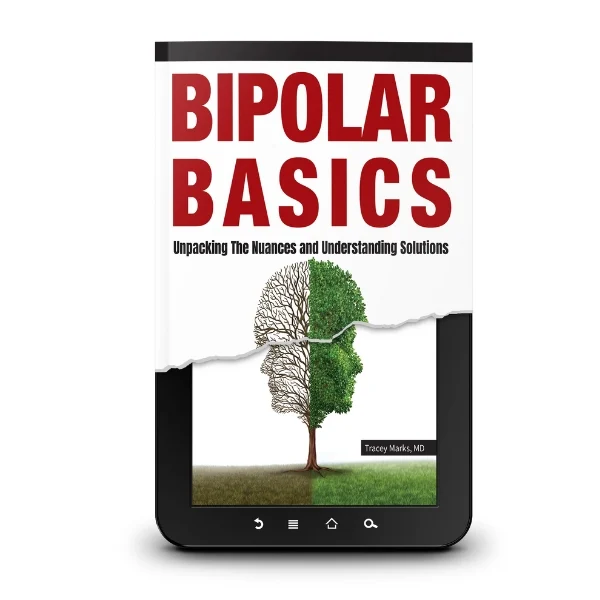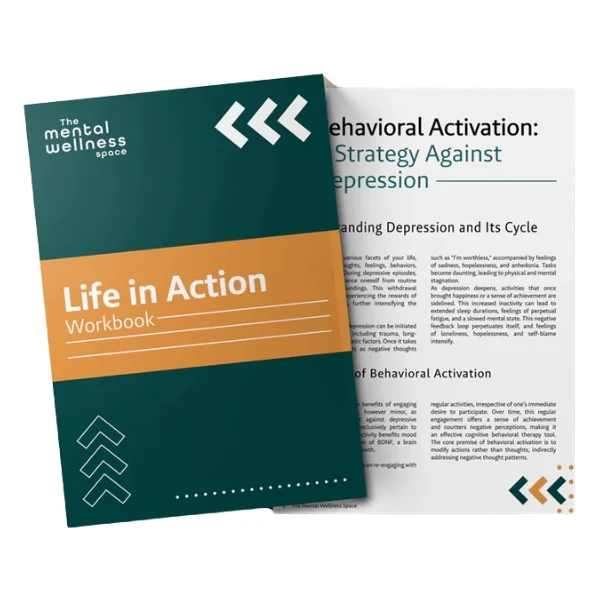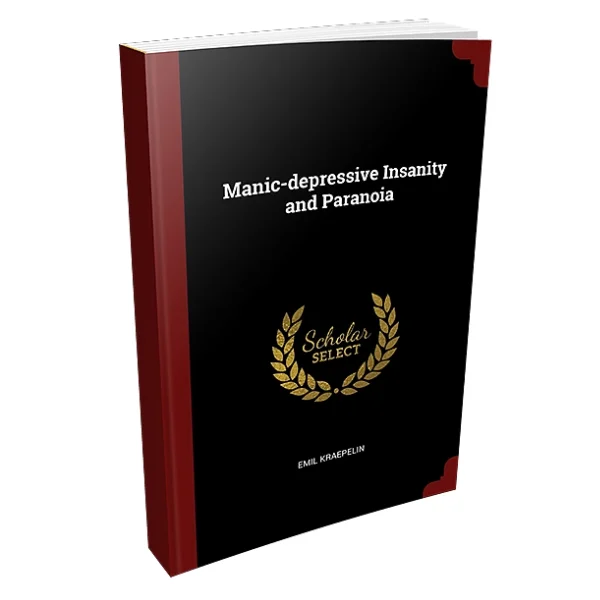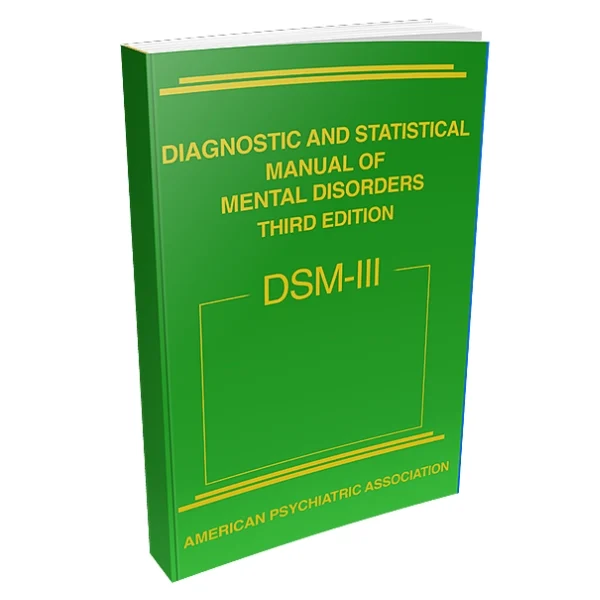Understanding Bipolar Spectrum Illness
Today’s video is about bipolar spectrum illness and is based on a viewer question from Saddam. He says
Products To Support You

Bipolar Basics Guide Ebook

Life In Action Digital Workbook
Mam it is my fourth time i have been asking that i have been diagnosed with bipolar spectrum 3 years ago, now I’m 21…i have read a lot but I’m still confused…will my diagnosis change bipolar 1 or 2 in future or will it remain same as bipolar spectrum..plz answer I’m in a great worry..
The short answer is that here in the US bipolar spectrum is not an official term. However, it is debated by researchers and clinicians as to whether bipolar disorder and depression really should be considered one bipolar spectrum illness and not be separate diagnoses.
Kraepelin's Legacy: Bipolar Spectrum Origins
This concept of bipolar spectrum dates back to the early 1900s with Emil Kraepelin.

Dr. Kraepelin was a German psychiatrist and considered the father of modern psychiatry. He identified and defined schizophrenia and manic depression which he termed manic depressive insanity. This was defined in his book, Manic-Depressive Insanity and Paranoia published in 1921. This is where we get the term manic depression which also don’t use as an official term anymore.
Manic Depression Behaves Differently From Other Illness
Manic depressive insanity was a recurring illness of both depression and mania, with or without psychosis. The key feature of the illness was the fact that it was episodic, and the episodes come and go.
This is different from the other illnesses we have in psychiatry. With schizophrenia, the course of the illness is that it comes, and it stays. The symptoms plateau to where it remains at the same level for long periods, then overtime you can have dips where the illness gets worse.
People with anxiety can have waves of it where their anxiety is more intense and unmanageable and then improves. But they still have some degree of anxiety that’s always there, it’s just manageable. You may just think “this is how I am. Things just bother me more than other people.”
With ADHD the peak occurrence of that illness is in childhood and it can completely go away or improve to the point where, like anxiety, the symptoms are manageable. Many people continue to have symptoms as adults.
But depression and mania behave differently. You have episodes of depression or mania that are present for a while, then it go away. Sometimes depression can be present for a long time, like years. But for the most part, the nature of the mood disorders is that they come and they go.
This is how Dr. Kraeplin conceptualized this illness as manic depression. The insanity part comes with the presence of psychosis that can occur in either the manic state or the depressive state. I did a video talking about psychotic depression that you can watch for more understanding about that condition.

In 1980 the third edition of the Diagnostic Statistical manual of mental disorders was published and manic-depressive insanity was split into bipolar disorder and unipolar major depression. With this change, the key feature of the illness became polarity rather than episodes.
So, it was thought that the experience of having opposite disordered mood states is a separate phenomenon from having the same mood state that repeats. So repeating episodes of depression was carved out as a separate illness called major depression. And repeating episodes of opposite poles of mania and depression was then termed bipolar disorder.
Not everyone has accepted this change. Some believe Kraepelin’s original broader concept of manic depression more accurately describes what we see in practice. Some researchers believe there is more to bipolar disorder than mania and depression and we should change the term to bipolar spectrum to include other conditions like:
Atypical depression is a subtype of major depression with certain features like increased appetite and sleep as well as being able to transiently have a better mood if something positive happens.
Usually with depression, having a good day doesn’t brighten up your mood. In fact one of the symptoms of depression is anhedonia. Anhedonia is when you’re unable to find joy our pleasure in anything.
Now there are some who go a little further and believe that depression does not happen without mania. This concept is called the primacy of mania. The saying is
"Mania is the fire, depression is the ash"
This viewpoint is not as popular and accepted as the view of mania and depression being grouped together as a single bipolar spectrum illness.
So there are people who believe that in the United States, we should change the terminology to bipolar spectrum disorder to put us closer to what Emil Kraeplin originally intended. His concept is a broader illness that includes episodes of mania and depression allowing people to manifest either mania or depression at any time.
Back to Saddam’s question
Will his bipolar spectrum diagnosis would at some point convert to bipolar 1 or 2. Terminolgy-wise – no it won’t because bipolar 1 and bipolar 2 are terms that are based on a different way of thinking about the illness. Since bipolar spectrum is more of an umbrella term that includes having mania and depression, it already includes bipolar 1 and bipolar 2 disorder.
So, it’s a terminology thing. However, if the real question is, will you start having manic episodes? That’s hard to predict. Having a family member who has had manic episodes increased the chance that at some point that you will have one, but it’s not guaranteed. If currently, you are having only depression, maybe with some anxiety mixed in, you could continue to have depression that returns without mania or hypomania ever happening.
What does this issue of bipolar spectrum mean practically? It doesn’t mean that if you’ve ever been depressed you need to worry that you really have bipolar disorder. Keep in mind, bipolar spectrum or the original manic-depressive insanity did include having recurring depressions without a manic episode.
If you have an anxious depression, that anxiety or agitation with your depression is different from mania. With mania you can have psychosis, extreme impulsivity or poor judgment just to name a few symptoms. That’s not the same as anxiety. You can continue to have anxiety that never turns into mania.
But even if we considered it a spectrum illness where on one end you have depression alone and on the other end you have depression and mania, people can remain at one end of the spectrum. You need to hold your breath waiting to have a manic episode. If you have a first degree relative with bipolar disorder like a parent or sibling, then you do have a greater risk of manifesting mania or hypomania at some point, but it’s still not a given.
If you’ve only had depression and no mania, we still treat with an antidepressant first until we see a reason to add a mood stabilizer. Reasons to add a mood stabilizer would be emerging mania or hypomania or if your depression did not respond adequately to a mood stabilizer alone. We call this treatment resistant depression. The treatment for treatment resistant depression looks very similar to the treatment for bipolar disorder.
Do Activities You Enjoy
Here’s a video on Treatment Resistant Depression
For more on what mania and hypomania look like, watch this video

